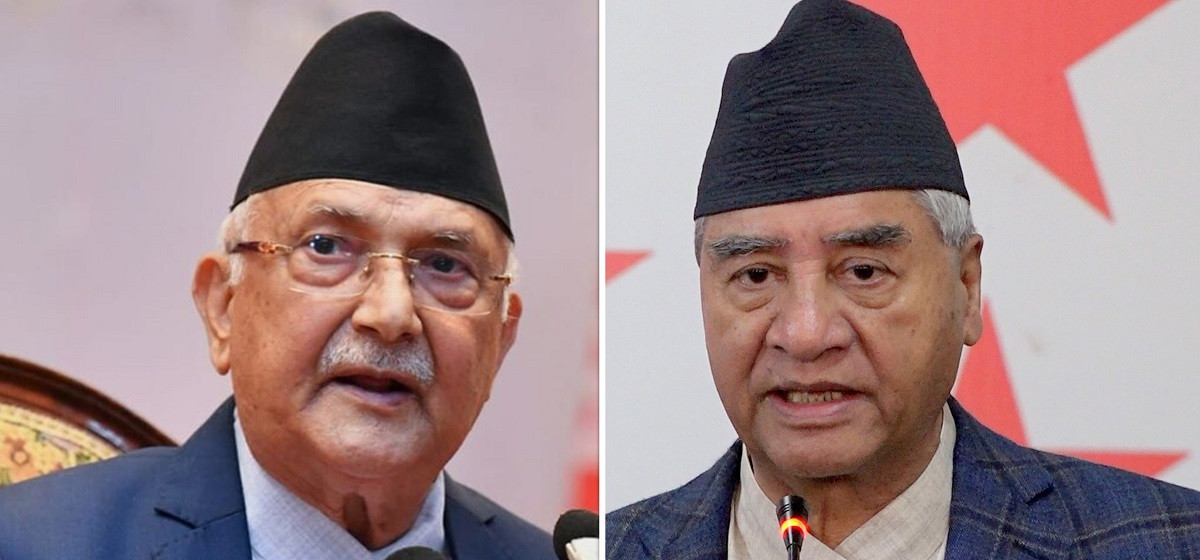Kathmandu, some parts of it at least, was given a facelift overnight on the eve of Chinese President Xi Jinping’s visit to Nepal last week. It had to be done. We could not keep major parts of the valley enveloped in dust and dotted with potholes during the times of high level visit from the largest neighbor. But three days after President Xi departed for home country, these roads and all the decorations laid out are getting back to the old state. The flowers in the garden erected at major sections like Maitighar and Tinkune are wilting. Some of them have been removed or in a broken state. The roads that looked speckless from Friday to Sunday have started to blow out the dusts. This is not done.
NC-UML agree to exclude 'take and pay' and 'take or pay' in PPA

The governments in Nepal have made it a point to decorate railings and blacktop the roads before the foreign guests come to Nepal. It was so during Indian Prime Minister Narendra Modi’s three visits in the past. But afterwards, the gardens which were created were left untended. The road maintenance work that started stopped all of a sudden and the residents of Kathmandu were made to live with fumes, smokes and dust. This is exactly what is happening this time around as well. This is symptomatic of how the governments of the day care little about roads, which are usually in disrepair and which the Nepali public—both motorists as well as pedestrians—have to use on a daily basis. It is precisely for this reason the decorative works carried out during the visits of foreign dignitaries become the subject of public scorn. Like in the past, people in social media platforms were criticizing the government for being least bothered about the inconvenience of the public who have to bear with dust and pollution all other days.
The government of KP Sharma Oli can save itself from public criticism if it mobilizes the authorities to ensure that maintenance works which started last week are continued and that such works are extended to all parts of the Kathmandu Valley, where most of the roads are in utter chaos. Take roads along the Chabahil area, for example. It is in such a state that one cannot stand by its side without wearing masks. Why cannot the authorities extend their maintenance drive toward this particular area or any areas where the roads await urgent repair? During the times of the visits of foreign dignitaries, the government springs into action and roads that remain in utter chaos get a facelift overnight. This means that if the government feels the urgency it can mobilize all its resources to accomplish the works which on normal times take days, even months. Such urgency should be demonstrated during the normal times too. The government made the best preparations for Xi’s visit and it has been appreciated for that. Now, if the government can keep the Valley roads as clean as they were during Xi’s visit and expedite road maintenance works in all areas with the same sense of urgency, it would be appreciated even more. Even seemingly little work can leave a good and lasting impression in people.










_20211006150830.jpg)




























